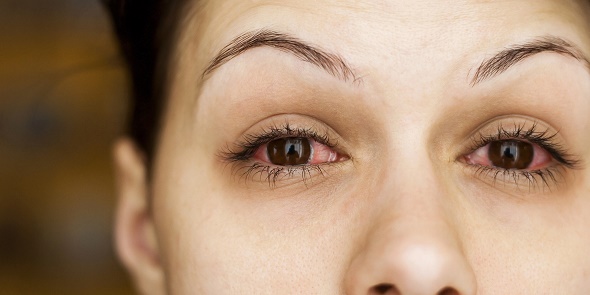Pink Eye- symptoms, prevention & care

Pink eye, also known as conjunctivitis, is an inflammation of the conjunctiva, the thin, transparent layer covering the white part of the eye and the inner surface of the eyelids. It can be caused by viruses, bacteria, allergies, or other irritants. Here's some information on its symptoms, prevention, and care:
Symptoms of Pink Eye (Conjunctivitis):
-
Redness in the eye: The affected eye may appear pink or red.
-
Itching or irritation: The eye(s) may feel itchy and uncomfortable.
-
Watery or thick discharge: The eye may produce a watery or thick, colored discharge. Bacterial conjunctivitis can cause yellow or greenish discharge, while viral conjunctivitis may have a more clear or watery discharge.
-
Crust formation: After sleeping, there may be crusts or flakes around the eyelids or lashes due to the discharge.
-
Swelling: The eyelids may become swollen.
-
Sensitivity to light: The eye may be more sensitive to light (photophobia).
Prevention of Pink Eye (Conjunctivitis):
-
Practice good hygiene: Wash your hands frequently, especially if you have been in contact with someone who has pink eye.
-
Avoid touching your eyes: Refrain from touching or rubbing your eyes, as it can spread germs.
-
Avoid sharing personal items: Do not share towels, washcloths, or eye makeup with others.
-
Clean contact lenses properly: If you wear contact lenses, ensure they are cleaned and stored as per the optometrist's instructions.
-
Avoid irritants: Protect your eyes from potential irritants like smoke, dust, and other allergens.
-
Stay away from infected individuals: If someone has pink eye, avoid close contact with them until they are no longer contagious.
Care for Pink Eye (Conjunctivitis):
-
Keep your eyes clean: Gently clean your eyes and surrounding area with a damp, clean cloth to remove any discharge or crusts.
-
Use artificial tears: Over-the-counter lubricating eye drops can help relieve discomfort and reduce dryness.
-
Avoid wearing contact lenses: If you wear contact lenses, avoid using them until the condition clears up.
-
Apply a warm compress: A warm, moist compress can help reduce swelling and soothe the eyes.
-
Avoid allergens and irritants: If your pink eye is caused by allergies or irritants, try to identify and avoid them.
-
Seek medical advice: If you suspect you have pink eye or experience severe symptoms, it's essential to consult an eye specialist Doctor. They can determine the cause and recommend appropriate treatment, which may include prescription eye drops or ointments. Gentamycin Eye drop and Ciprofloxacin Eye drop are two important medicines advised by doctors to use in Pink Eye (Conjunctivitis)
Remember that while the above information provides general guidance on pink eye, individual cases may vary. If you experience persistent or severe symptoms or have concerns about your eye health, consult an eye care professional for proper evaluation and personalized advice.
Author- Dr. Amar Nath Pandey, Coordinator, School of Computer Science, Nalanda Open University, Patna
Picture taken from-Wizard Pharmacy website
